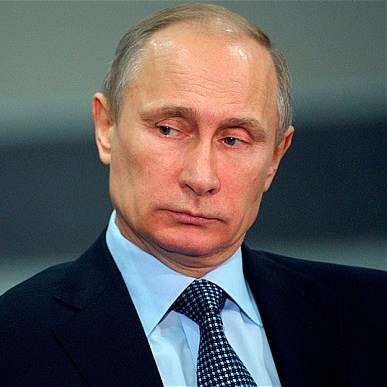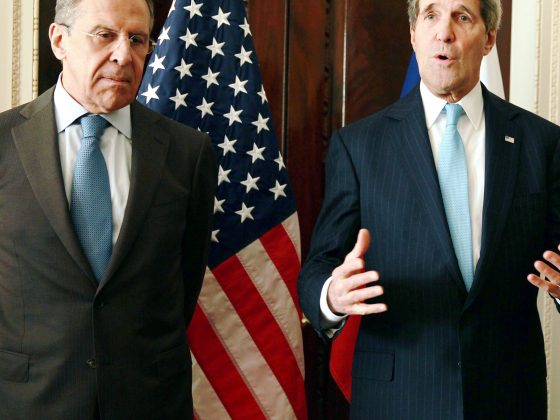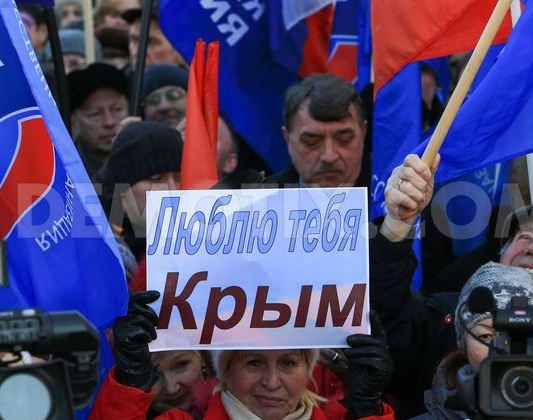(Slate) The outcome of the crisis in Ukraine depends to an unusual extent on the intentions of one man: Russian President Vladimir Putin. In the last few weeks, since the collapse of Viktor Yanukovych’s Russia-friendly regime and Moscow’s precipitous invasion of Crimea, analysts have been obsessed with trying to get inside the Russian leader’s mind.
Initially, when Russian troops without insignia appeared in Crimea, the assumption was that Putin was a strategic thinker, taking advantage of a weak central government and appealing to receptive residents who believed Russian propaganda about a fascist government in Kiev. He would bargain for some concessions, the thinking went, but was not so crazy as to risk a war with NATO and jeopardize years of efforts to improve Russia’s image abroad. It was believed Putin was engaged in ordinary brinkmanship.
However, once the occupation deepened and the Crimean parliament approved the holding of a referendum to join with Russia—with the Russian government’s support—the narrative changed. Now, Putin’s actions appear to some to have been not a kneejerk decision, but part of a larger campaign to restore the Soviet Union, unite all the Russians of the former empire, or take over all of Ukraine.
Others have gone further, arguing that Putin is off his rocker. There is the believes-his-own-propaganda theory that Putin sees himself in a replay of World War II and a struggle against Nazis. There is the living-in-a-bubble theory that Putin has shut himself off from the world and only consults with like-minded, nationalist ex-KGB advisers who loathe the United States. And there is the blind-rage thesis that, after losing his ally in Ukraine, Putin is simply acting out of spite by attacking an easy target. […]











